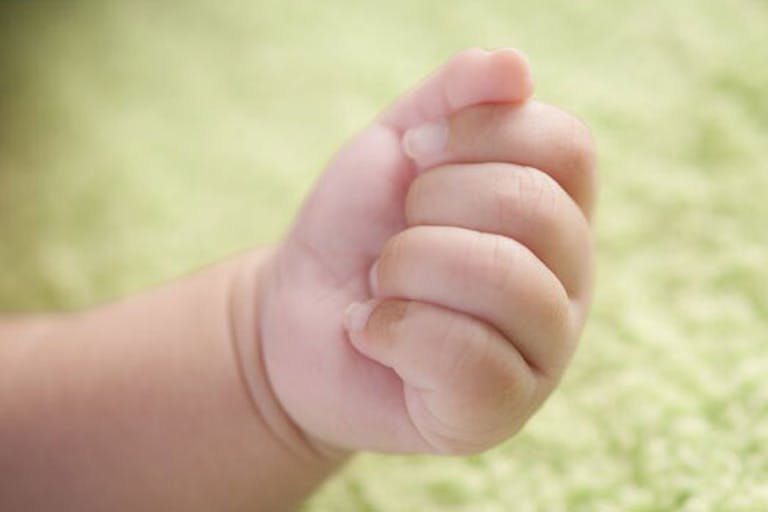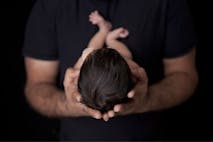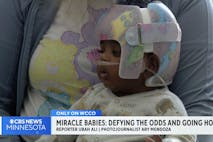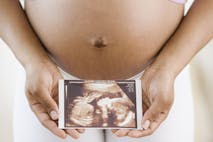
Northern Ireland man charged with murder of woman and her preborn child
Bridget Sielicki
·
Aborting babies with disabilities is a tragedy, not an act of compassion
The New York Times recently published an op-ed by an woman who proclaims her late-term abortion was the right decision. The piece, called “I Had a Late-Term Abortion. I Am Not a Monster” Lyndsay Werking-Yip, is profoundly misguided and tragic, but also emblematic of an attitude all too prevalent in our culture today.
Werking-Yip’s decision to procure a late-term abortion started when, around 20 weeks’ gestation, doctors determined her baby had “severe brain abnormalities.” According to the Werking-Yip, “There was a small empty space where brain matter should have developed in our child’s frontal lobe. She also had agenesis of the corpus callosum, which meant that the middle structure joining left and right hemispheres hadn’t grown properly. And there was a third abnormality, a ‘rough’ area of gray matter.”
The author’s choice to end her baby’s life through abortion reflects society’s common view that children whose future includes uncertain suffering or developmental disabilities are “better off” aborted. A CNN anchor recently insisted that preborn babies with serious developmental challenges do not have a right to live: “Why would you want a family to have to have a child with a severe disability? … That child will have so many problems and will most likely not live past their first birthday. Why would lawmakers force parents to bring that child to fruition?” Even in once staunchly pro-life Ireland, abortion advocates are now pushing for legalization of late-term abortion for preborn babies with disabilities.
Werking-Yip’s doctors did not know how the abnormalities would affect the baby, only that she would likely face developmental delays, seizures, and other problems, but not a never-before-seen medical condition. At 23 weeks, Werking-Yip decided to procure an abortion, telling herself what many parents do — that abortion is the “compassionate” decision: “My husband and I chose to end our child’s life. … Our child would not be given a life of pain and suffering. Instead, we would take her pain on as our own.” But tragically, although she wanted to spare her baby pain and suffering, she actually didn’t. At 23 weeks of age, her baby was not only viable, but almost certainly capable of feeling pain, as a large body of research has shown. Instead of being granted the comfort of her mother’s embrace, the baby’s life was violently taken.
The author is far from the only person to have a prenatal diagnosis filled with uncertainty and challenges. When doctors realized Chase Briton had severe brain abnormalities, his prognosis was highly uncertain. Yet just years later, he was walking, talking, riding a bike, using scissors — leaving doctors dumbfounded. As Briton’s mother said, “Don’t give up on your kids.”
The mindset that preborn babies with disabilities must be aborted is based on a misguided sense of compassion rooted in despair. In a society that values the advancement of treatments for those suffering difficult conditions, medical developments continue to bring new hope to those suffering from serious conditions. Unfortunately, it seems that children in the womb are rarely afforded this new hope granted to those outside the womb. But some are working to change that. Just this month, a revolutionary new treatment for cystic fibrosis called Trikafta received FDA approval. The FDA’s press release called it a “breakthrough therapy.” Dr. Mike Boyle, senior vice president at the Cystic Fibrosis Foundation, called the new medication “transformative medication which is going to significantly improve outcomes for people with cystic fibrosis,” according to Stat.
The tragedy, as Lila Rose pointed out, is that many children are never given a chance. “Unfortunately, these diagnostic, life-saving advances are not always matched by caring and informed advice. Sometimes doctors and society recommend that babies with disabilities pay the ultimate price of abortion for their conditions,” she said. Prominent people in society even believe preborn babies with non-life threatening conditions like Down syndrome should be aborted. In Iceland, virtually every preborn child diagnosed with Down syndrome is aborted, and in several other countries abortion rates exceed 90% for babies identified as having the chromosomal condition. Yet as mothers who chose life for their babies with Down syndrome have attested, these children are a beautiful gift to the world.
The violence of abortion must never be a solution. We must bear one another’s burdens and seek ways to ease them, not kill those who may suffer. As Karen Gaffney, President of the Karen Gaffney Foundation, has argued, “Ending the life of an unborn child because he or she will have a disability is wrong, it is very, very wrong. … This view is unjust, tragic, and deserving of international outrage. It has no place in a world that stands for basic human rights.”

On one level, Werking-Yip’s grief is palpable, as she speaks of herself harshly and with latent guilt, as the speaks of the baby that she misses every day, and her first thought in the morning and last thought before going to bed. Her baby’s suffering was not lost on her, and she mourns her loss daily. If only she had been offered more support — if only our society gave those with disabilities more hope — she may not have felt as though her child was better off dead.
“Like” Live Action News on Facebook for more pro-life news and commentary!
Live Action News is pro-life news and commentary from a pro-life perspective.
Contact editor@liveaction.org for questions, corrections, or if you are seeking permission to reprint any Live Action News content.
Guest Articles: To submit a guest article to Live Action News, email editor@liveaction.org with an attached Word document of 800-1000 words. Please also attach any photos relevant to your submission if applicable. If your submission is accepted for publication, you will be notified within three weeks. Guest articles are not compensated (see our Open License Agreement). Thank you for your interest in Live Action News!

Bridget Sielicki
·
Politics
Cassy Cooke
·
Analysis
Cassy Cooke
·
Analysis
Nancy Flanders
·
Newsbreak
Angeline Tan
·
Human Interest
Nancy Flanders
·
Human Interest
Laura Nicole
·
Human Interest
Laura Nicole
·
Newsbreak
Laura Nicole
·
Human Interest
Laura Nicole
·
Human Interest
Laura Nicole
·